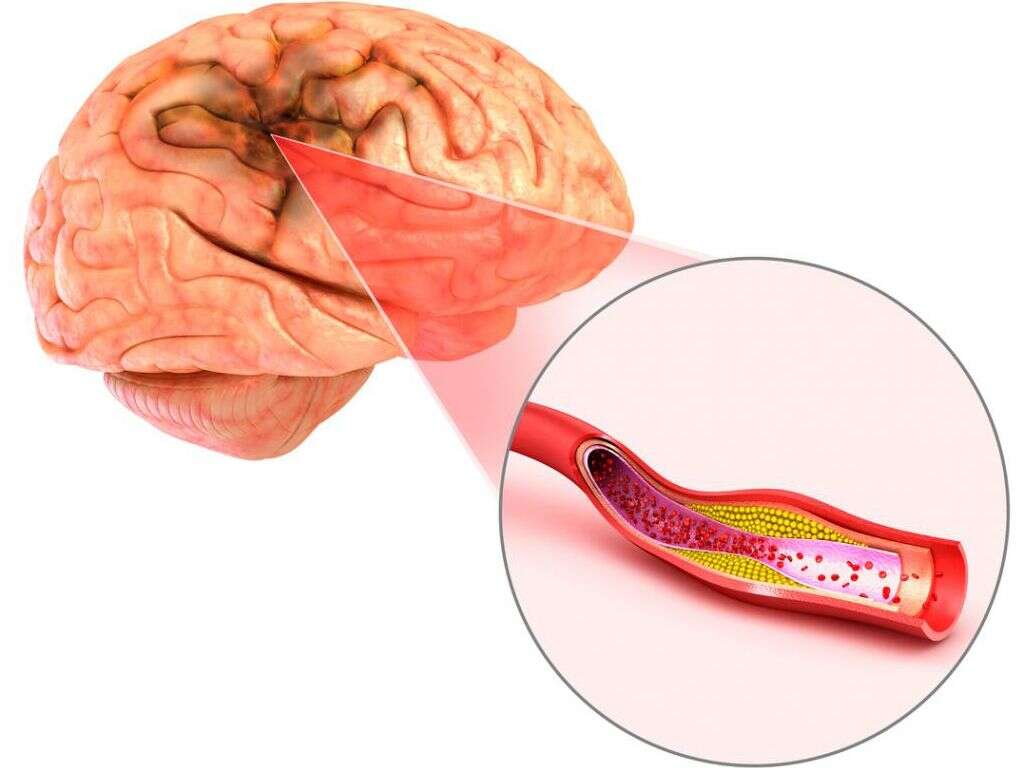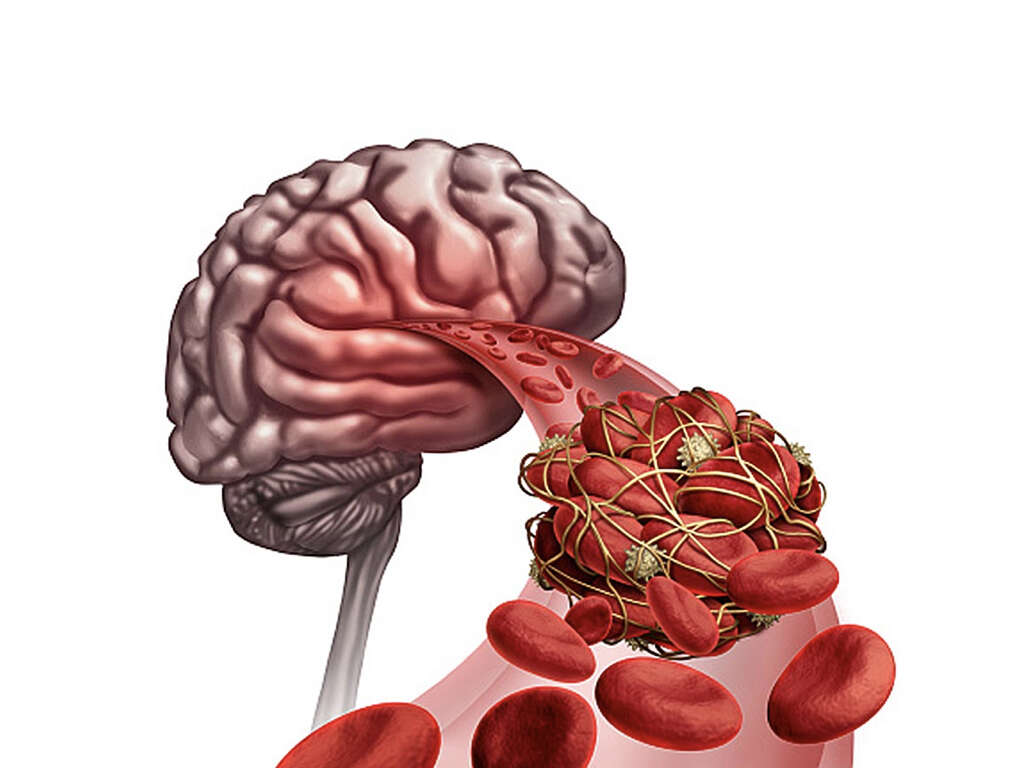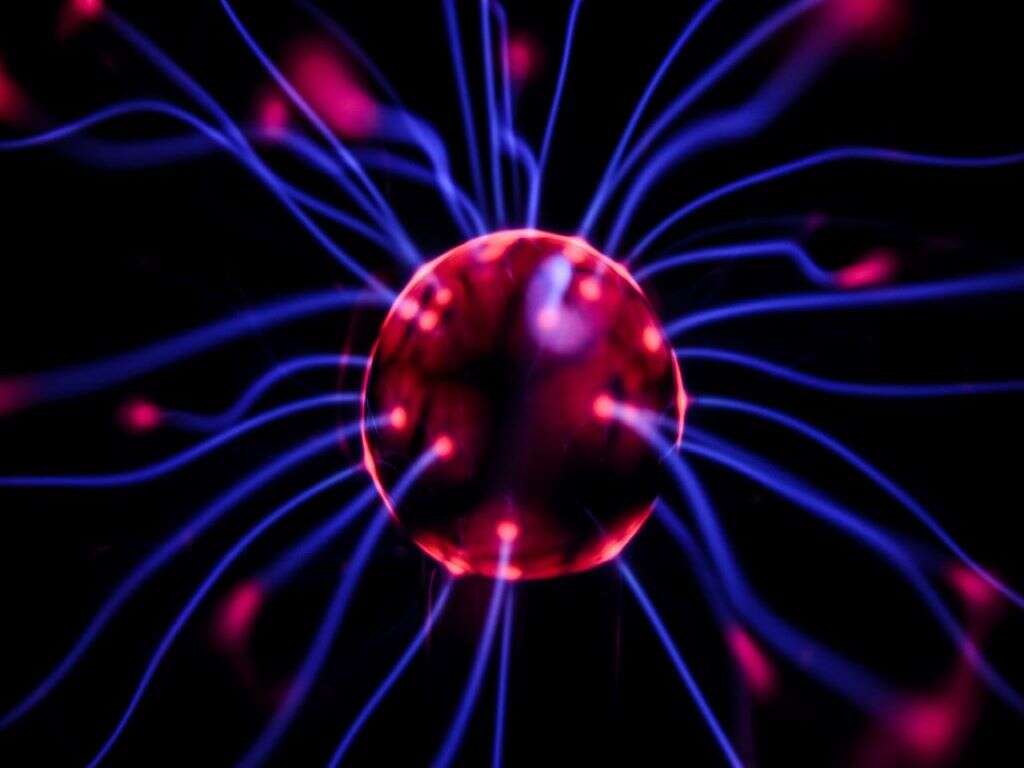What Is an Ischemic Stroke?
 Article Sources
Article Sources
- 1. Stroke Facts. Centers for Disease Control and Prevention, Centers for Disease Control and Prevention, 8 Sept. 2020, www.cdc.gov/stroke/facts.htm.
- 2. Ischemic Stroke Treatment. www.stroke.org, www.stroke.org/en/about-stroke/treatment/ischemic-stroke-treatment.
- 3. Edward C Jauch, M. (2020, June 22). Ischemic Stroke. Retrieved November 03, 2020, from https://emedicine.medscape.com/article/1916852-overview
Strokes are one of the top causes of death in the United States, and approximately one-fourth of people will suffer at least one stroke in their lifetime. According to the CDC, someone has a stroke every 40 seconds in the United States.1Stroke Facts. Centers for Disease Control and Prevention, Centers for Disease Control and Prevention, 8 Sept. 2020, www.cdc.gov/stroke/facts.htm. Ischemic strokes are the most common among all the types of strokes.
An ischemic stroke occurs when one of the blood vessels that carry blood to the brain experiences a blockage. It is known as ischemic because it causes “ischemia” or a restriction of blood supply to the tissue affected. As a result, there is a shortage of the oxygen needed for the tissue’s basic functions. If untreated, this may lead to subsequent tissue death. Seeking prompt care in this situation is essential, so understanding what the symptoms are and knowing what treatments are available can help individuals seek help more quickly.
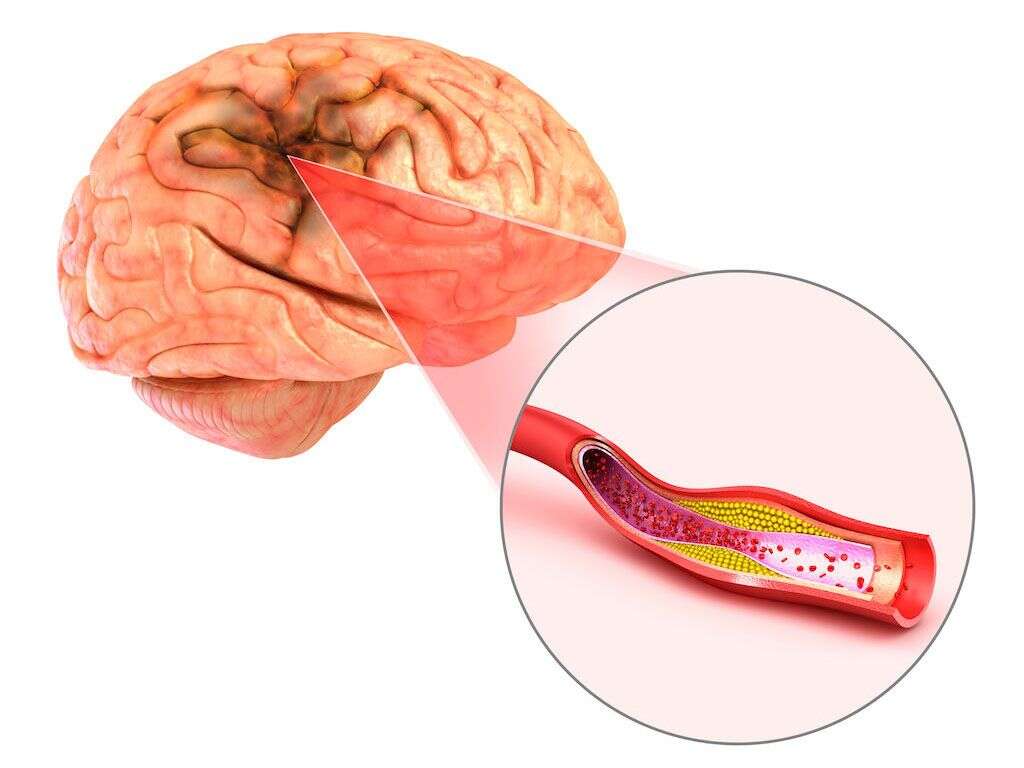
1. What Causes an Ischemic Stroke?
There are several reasons an obstruction may form in vessels, or arteries leading to the brain, resulting in an ischemic stroke. This blockage can be caused by either a thrombus (cerebral thrombosis) or an embolus (cerebral embolism). Cerebral thrombosis is the most common of the two.
A thrombus is a clot that develops at a plaque within a blood vessel, which is normally caused by a disease known as atherosclerosis. When a plaque within a blood vessel that supplies the brain ruptures and occludes it, we refer to it as a thrombus. Conversely, an embolus is a blood clot that forms in another place of the circulatory system (i.e. left heart). However, because this clot ruptures and travels, it manages to reach the brain and occlude small vessels. For instance, irregular heart rhythms (i.e. atrial fibrillation) can cause clots to form in the atria of the heart, break free, and make their way to the brain.

2. What Are the Signs and Symptoms of an Ischemic Stroke?
The symptoms associated with an ischemic stroke vary depending on where the clot forms. People commonly experience muscle weakness, which may affect only one side of the body, and intense dizziness. Confusion, face drooping, visual disturbances, and coordination problems may also occur.
A common acronym used to help people remember the symptoms of stroke is FAST, which stands for Face, Arms, Speech, and Time. Having one side of the face droop, experiencing difficulties raising the arms, and slurring when speaking all mean it is time to seek prompt care.
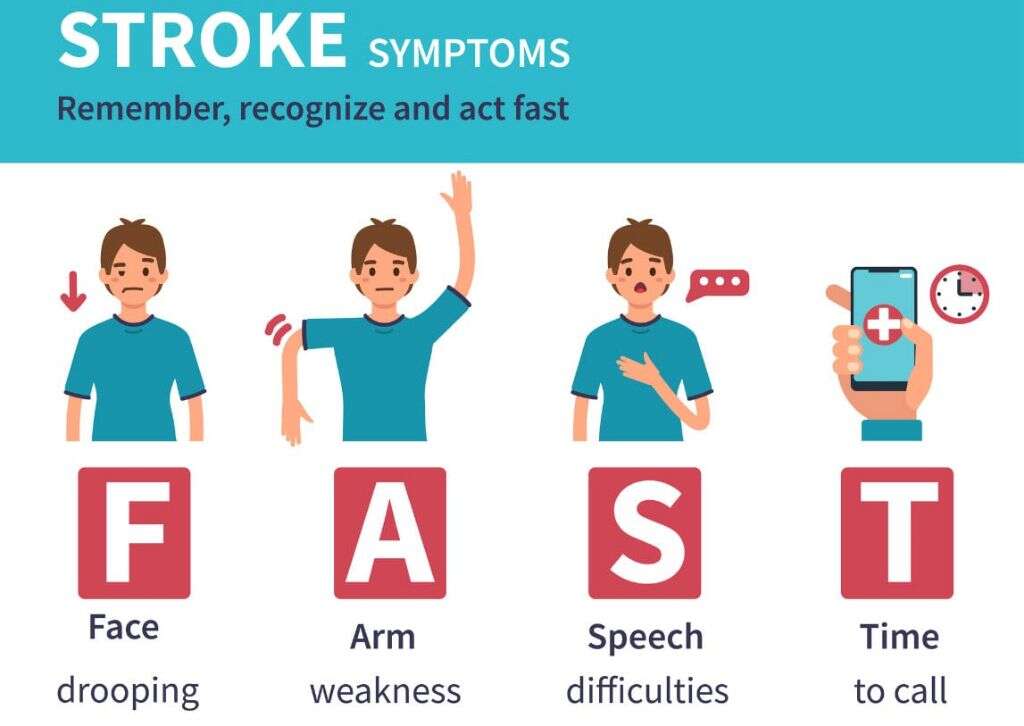
3. What Are Common Complications of an Ischemic Stroke?
The result of an ischemic stroke can be very serious, with death being a possibility. A stroke deprives the brain of necessary oxygen, which can permanently damage brain cells. The longer the individual goes without treatment, the poorer the prognosis.
Severe brain damage can occur causing complications such as memory problems, muscle paralysis, swallowing or speaking difficulties, depression, etc. These can be temporary or permanent.
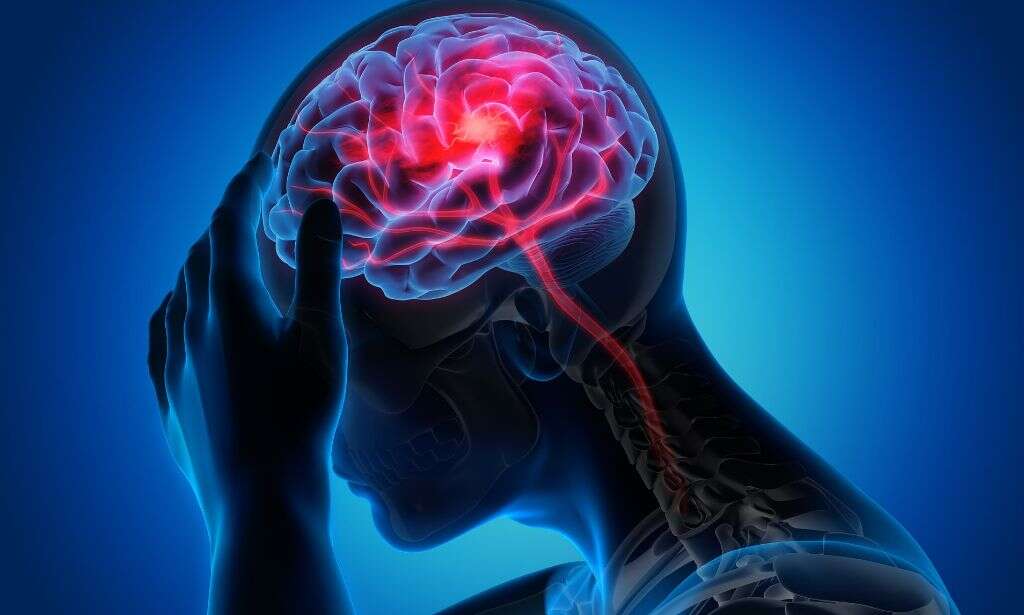
4. How Long Do the Side Effects of an Ischemic Stroke Last?
How long complications last following an ischemic stroke depends on how long the body and brain have been deprived of oxygen, where the stroke occurred, and how severe it was.
For some, memory and motor issues may be permanent. Physical therapy may help people to relearn basic activities, such as walking, speaking, and eating. Learning how to manage symptoms may be necessary for adults with permanent effects.

5. What Treatments Are Used for an Ischemic Stroke?
Following the stroke, immediate care should be administered. If possible, the patient or someone nearby should call for an ambulance, as damage can occur within minutes. The main goal of treatment is to dissolve the clot so blood flow to the affected part of the brain can be restored.
According to the American Stroke Association, the main method used to clear the occlusion is the intravenous administration of drugs that can disintegrate the clot. Yet, these can only be administered before irreversible damage occurs: within 4.5 hours from when the signs and symptoms started. A common drug used for this therapy is alteplase or recombinant tissue plasminogen activator. However, like any other drug, alteplase may have unwanted side effects. Thus, not everyone that has had an ischemic stroke is a candidate to receive this therapy. Importantly, speedy treatment can reduce complications and improve the chances of survival.

6. What Is the Outlook for Ischemic Strokes?
The prognosis after an acute episode varies from individual to individual, and they largely depend on the patient’s previous conditions, age, stroke severity, and post-stroke complications. It is estimated that thirty days after an ischemic stroke, the overall mortality is approximately 28 percent. Furthermore, the one-year survival rate for these patients is 77%.3Edward C Jauch, M. (2020, June 22). Ischemic Stroke. Retrieved November 03, 2020, from https://emedicine.medscape.com/article/1916852-overview
Approximately half of the survivors who are over the age of 65 experience reduced mobility. In general, the prognosis following a stroke is more positive for younger people. Furthermore, someone is 10 times more likely to stroke after having had one in the past than someone who has never experienced one. Fortunately, many people with these symptoms are able to regain some function by taking part in rehabilitation, including physical and speech therapy.

7. How Common Are Ischemic Strokes?
Overall, strokes of any kind are the fifth most common cause of death for people in the United States. They are also a leading cause of disability among older adults. According to a report from the American Heart Association, about 795,000 people in the US experience strokes every year. 3Edward C Jauch, M. (2020, June 22). Ischemic Stroke. Retrieved November 03, 2020, from https://emedicine.medscape.com/article/1916852-overview Furthermore, the CDC claims that at least one person has a stroke approximately every 40 seconds.
Ischemic strokes are the most common type, and they make up approximately 82-92% of stroke incidents in the US.3Edward C Jauch, M. (2020, June 22). Ischemic Stroke. Retrieved November 03, 2020, from https://emedicine.medscape.com/article/1916852-overview

8. Is a Transient Ischemic Attack the Same as an Ischemic Stroke?
While both transient ischemic attacks (TIAs) and ischemic strokes involve blood clots, an ischemic stroke is much more dangerous than a transient ischemic attack.
Transient ischemic attacks are caused by a temporary blood clot that only occludes blood flow to the brain for a short period. The attack itself typically only lasts a couple of minutes, although the effects can linger for up to 24 hours. The effects of a TIAs are usually temporary and milder than those of an ischemic stroke.
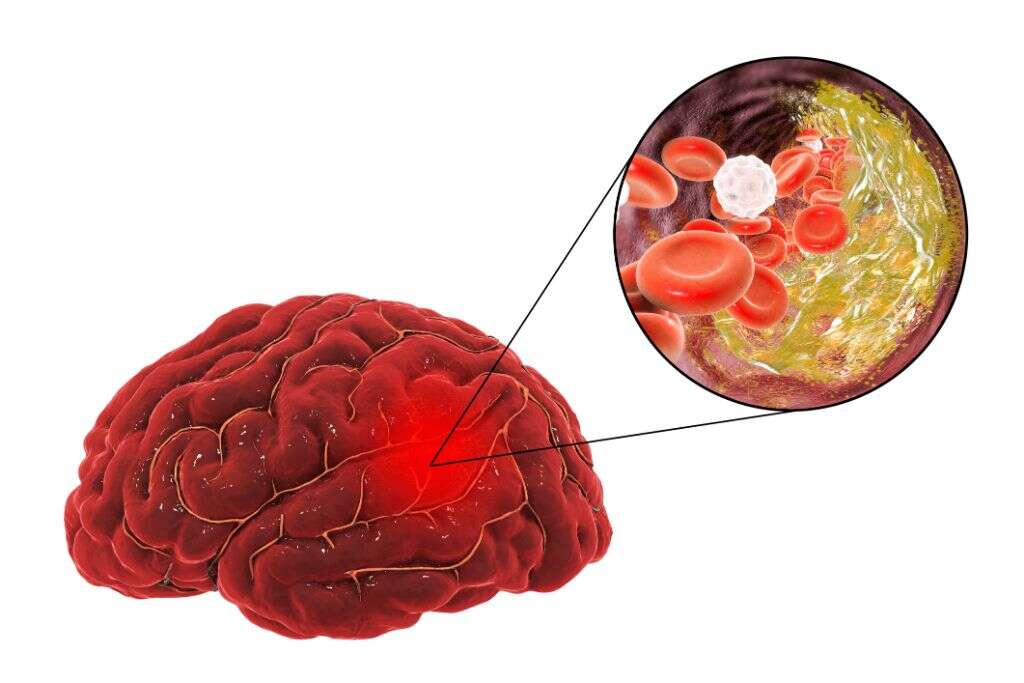
9. What Are the Risk Factors for Ischemic Strokes?
The main modifiable risk factors that make a person more likely to have an ischemic stroke include high blood pressure, cardiac disease, TIAs, high cholesterol, diabetes mellitus, obesity, heavy alcohol intake, illicit drug use, and tobacco use.3Edward C Jauch, M. (2020, June 22). Ischemic Stroke. Retrieved November 03, 2020, from https://emedicine.medscape.com/article/1916852-overview
Some people are genetically susceptible to strokes, including individuals who have conditions such as sickle cell anemia, clotting disorders, and congenital heart defects. Similarly, a family history of stroke or TIAs is also a nonmodifiable risk factor for ischemic strokes. Other nonmodifiable risk factors include age, race, sex, and a history of migraine headaches.3Edward C Jauch, M. (2020, June 22). Ischemic Stroke. Retrieved November 03, 2020, from https://emedicine.medscape.com/article/1916852-overview For instance, men are at a higher risk than women, and approximately 65% of people who are hospitalized for a stroke in a given year are over the age of 65. Also, certain races are more likely to experience a stroke of any kind: blacks are almost twice as likely to have a first stroke than whites.

10. How Can Ischemic Strokes Be Prevented?
Addressing risk factors is the most beneficial preventative action. For instance, if an individual is obese, has high blood pressure, or high cholesterol, making dietary changes and exercising more can dramatically decrease the chances of having an ischemic stroke. Additionally, if appropriate, the physician can prescribe medications that can improve cholesterol (i.e. statins) and triglyceride levels or modulate certain aspects of clotting (antiplatelet agents). Finally, smoking cessation is an important aspect of stroke prevention.
For high-risk individuals, working with a doctor to monitor their health can help reduce their stroke risk, especially for people who have already had at least one stroke.




